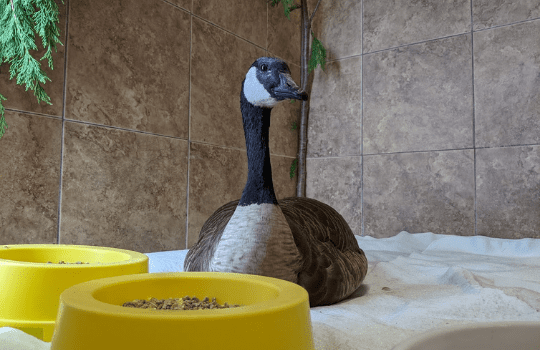Lead poisoning is a serious condition that affects wild birds and other animals when they are exposed to lead – from surviving a lead shot, ingesting spent ammunition or fishing tackle, or secondary poisoning from eating carcasses contaminated with lead. Lead is a toxic metal and even a small amount is enough to kill an animal.
Some affected animals don’t show symptoms, while others are lethargic or have trouble breathing, suffer from blindness, or experience muscle paralysis, seizures and eventually death. Lead poisoning isn’t always obvious because poisoned animals are more likely to be killed in vehicle collisions, window strikes or entanglement in fishing gear, or will seek shelter and isolation to suffer in silence and are never found.

Lead shot is prohibited in Canada, and lead sinkers and jigs are prohibited in Canada’s national parks and wildlife areas. Unfortunately, these items are still used and the remnants of them are still present in our ecosystems. The impacts of lead poisoning are preventable – the BC SPCA recommends only lead-free alternatives to keep this toxic metal out of the environment.
